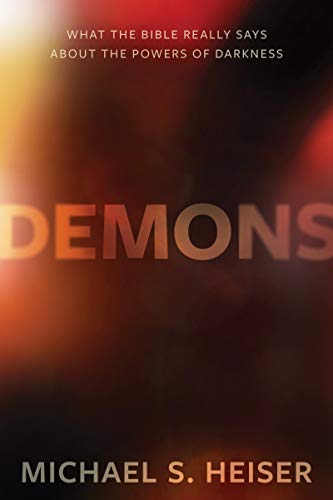BEN: I am not much convinced by the new exodus readings of especially the beginnings of Jesus ministry by Watts and Wright etc. It seems rather clear to me, especially for example in the genealogy in Luke 3, that Jesus is portrayed not as Israel gone right, but rather as humanity rebooted, the Son of Man is his preferred term. He even disputes whether Son of David is an adequate title for him. This is also why Paul calls Jesus the last or eschatological Adam and only once in Rom. 1 mentions a connection of Jesus with Davidic ancestry. I do see the association of wilderness with wild animals and demons as having an OT background, but that is another matter. Nothing is said in the Pentateuch about God’s people encountering demons in their wilderness wanderings. Furthermore, what is being tested in Jesus’ temptations is his being the divine Son of God, not him being a Moses like figure leading God’s people through and beyond the wilderness. Even Moses had no capacity to turn stones into bread, but the divine Son of God did, and he was being tempted to push his God button, and thereby cease to accept the limitations of the incarnation— the normal limitations of being human— limitations of time, space, knowledge, power, and even mortality.
MICHAEL: I know now that, in the wake of Wright, “everything” is parsed as new exodus. If you’re objecting to the over-statement of this case, I’d agree. That said, I do think there is something to the new exodus hermeneutic, but even where it seems to make good sense I think it would be a mistake to say it overrules or eliminates other hermeneutical trajectories. I see little coherence in the notion that New Testament writers had hermeneutical limitations places on them (“you can use new exodus or something else, but not both or it’s points off”).
BEN: Let’s talk about Mt. 4 for a minute. The Devil shows Jesus ‘all the kingdoms of the world’, which surely must include Israel! The term all, means all, not all the other non-Jewish kingdoms of the world. This is why Paul calls Satan simply, ‘the ruler of this world’ not the ruler of the rest of the world. The whole world, including Israel is the fallen world ruled by Satan, not merely the other nations mentioned at Babel….. Further, Jesus says his kingdom is not the kingdom of Israel, it’s the kingdom of God, meant to claim all the kingdoms of this world for God, including Israel. Comments?
MICHAEL: I don’t know that “all” means “all” here in the sense you describe, though if it did, I don’t think it changes the messaging. To illustrate, the Abrahamic covenant language we find in many places in the Old Testament uses “all nations” as the referent of the blessing of Abraham’s seed or nation (Israel). And so Israel wouldn’t be included in “all nations” there (the intent of the covenant language isn’t to bless itself along with the nations – and yes, I’m aware of the Hithpael / Niphal issues in Gen 12:3; I think the passive nuance for both is in view here, and that’s also the way Paul takes it via the passive verb form of LXX). But let’s take your interpretation and see how it could also work. Sure, “all” nations means “all,” including Israel. The titling of the rebel is still coherent because all need deliverance from death (including Jews). Since Satan was fishing for information in this scene (readers can listen to my episode on Psalm 91 and its use here via the Naked Bible Podcast, Episode 324), and since that information (which Jesus never surrenders) is key to the redemption of all who believe (including Jews), your trajectory is workable. I’m just not specifically persuaded of it in this instance.













